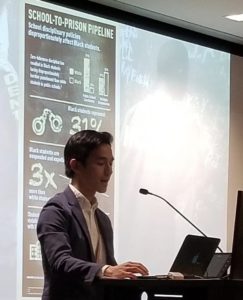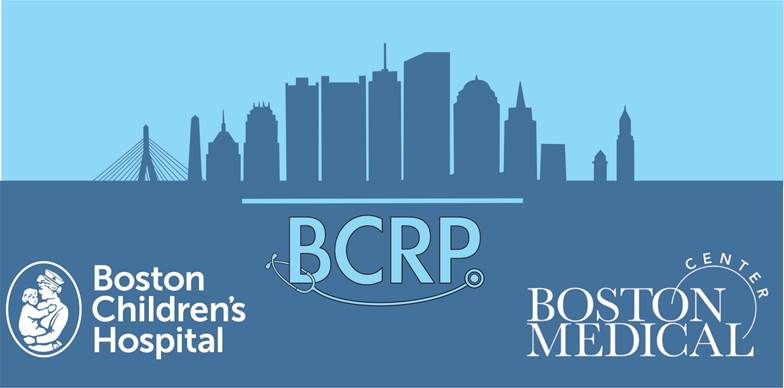Individualized Curriculum
Each resident will have six months of an Individualized Curriculum consisting of three months of the Academic Development Block and three months of other rotations relevant to his or her future career.
The six months are distributed as follows:
- PL-1 Year: 0.5 month
- PL-2 Year: 1.5 months
- PL-3 Year: 4 months (includes 3 months of ADB time)
Mentoring and Individualized Curriculum
Each BCRP Academy is supported by a group of faculty members who have demonstrated an interest in serving as mentors and advisors for residents within the Academies. Please click here for more information on the Academies.
Academic Development Block

One of the standout aspects of the BCRP curriculum is the Academic Development Block (ADB), which is an innovative, multifaceted experience for PL-3 residents to explore and foster their academic interests. This 3-month rotation is unique to the BCRP and is designed to allow residents to customize their training to attain the skills, experience and knowledge necessary to further their careers. The ADB contains a core seminar curriculum and allows significant dedicated time for individualized mentored research, education, quality improvement or advocacy projects.
The core curriculum, is designed to augment knowledge gained during the first two years of residency and is directed towards fostering lifelong learning and skills-building; topics range from discussions about critical appraisal of the medical literature, understanding health care for children in the context of local, state and federal policies, and navigating academic promotion systems. It focuses on the following specific skills:
- Creating and applying new knowledge — research study design, biostatistics, epidemiology, evidence-based medicine, literature searching and human subjects considerations for children.
- Health care policy and environment — health care disparities, economics and funding, delivery systems, and resource allocation.
- Molecular Medicine — future “hot” areas of basic science research.
- Organization and quality of care — quality improvement, patient safety, and legal issues in the practice of medicine.
- Career-building – writing your CV, negotiating your first job, exploring avenues for future research funding and non-traditional career paths.
These sessions are led by expert faculty from both institutions and include basic and clinical researchers with interests in translational medicine, clinical and outcomes research, public policy and advocacy and medical education, as well as successful social entrepreneurs and community advocates.

The second major component of the block is protected time for residents to focus on research, medical education, quality improvement, community advocacy experiences, or more in-depth, individualized clinical experiences. Residents meet regularly with faculty mentors throughout ADB to design their projects and organize their time. Senior residents have used their ADB time in a wide variety of ways to explore career alternatives, start or complete a primary research project, or lead a unique endeavor that will enhance and expand their training (and that often contributes to the training of other residents). The diversity of ADB activities reflects the diversity of interests and career paths of our residents.
Over the past six years the results from approximately half of the projects have been presented at national meetings and/or culminated in a peer-reviewed publication.
Recent Projects
- Quality improvement project to ensure limited English proficiency families have access to in-person interpreters on family-centered rounds
- Design of an online, interactive simulation platform to help teach appropriate responses to urgent and emergent overnight clinical scenarios
- Estimating the financial burden of accidental buprenorphine ingestion
- Retrospective review of cases of aspiration pneumonia in the emergency room setting
- Investigation of yield of lumbar puncture for meningitis following status epilepticus
- Weight perception and unhealthy weight control behaviors among gay, lesbian and bisexual youth
- Examination of fatty acid binding protein 4 expression in lymphatic malformations
- Retrospective study of risk factors for fatal and non-fatal pediatric firearm injuries in the United States
- Study of vaccine coverage and parental attitudes on immunization in India
- Retrospective clinical review combined with blinded bone marrow re-review to define clinical predictors of failure for patients with aplastic anemia treated with immunosuppressive therapy
- Investigation of seroconversion rates following double dose hepatitis B vaccine among HIV-infected children and adolescents
- Review of colonoscopies to determine agreement between endoscopic assessment of mucosal findings and pathologic findings on biopsy
- Genomics/proteomics approach to characterized differences between adults with acute myelogenous leukemia
- Summary of common practices in diagnosis and treatment of malaria in Nigeria
- Examination of methylenetetrahydrofolate dehydrogenase 2 as a target for treatment in acute myelogenous leukemia
- Chart review on aortic regurgitation after interventions for aortic stenosis in staged palliation of hypoplastic left heart syndrome
- Discovery and validation of role of mobile genetic elements in malignant rhabdoid tumors
- Retrospective chart review of TNF-inhibitors in refractory uveitis
- Educational trial examining different methods of teaching simulation and development of longitudinal residency simulation curriculum
- Completion of a study of procalcitonin as a test for serious bacterial infection among febrile infants
- Effect of pump type on mortality during pediatric ECMO
- Development of a pediatric training curriculum in Liberia
- Effect of hydroxyurea on emergency department visits in patients with sickle cell disease
- Study of long-term pulmonary artery stenosis after repair of aberrant pulmonary artery in infancy
- Effect of cranial radiation on growth hormone and parathyroid hormone abnormalities
- Household material hardship among pediatric patients with advanced heart disease
- Prospective multi-center study of bronchiolitis admissions
- Health needs assessment of orphaned children in Malawi
- Creation a residency specific podcast reviewing quick hits and clinical pearls from the previous week’s educational conferences



